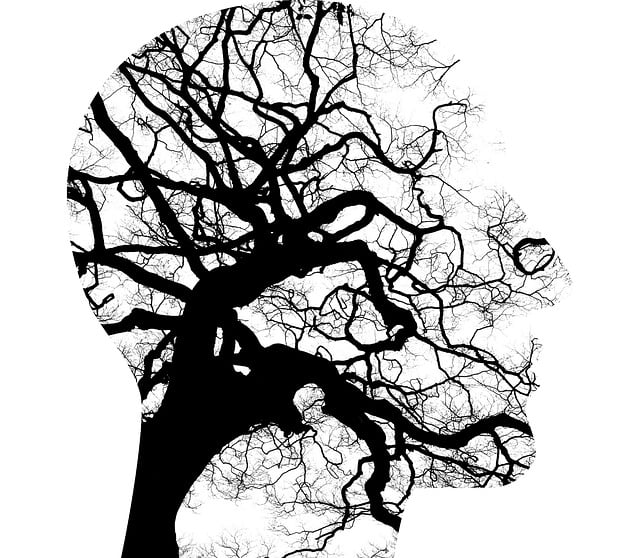Louisville Sexual Addiction Therapy emphasizes the importance of coping skills in recovering from sexual addiction. Through evidence-based practices like mindfulness meditation and stress management, clients gain tools to manage intense urges, overcome addiction, and develop long-term emotional resilience. By identifying triggers and learning healthy coping strategies, individuals can proactively navigate challenges, reduce relapse risk, and foster a fulfilling life post-therapy. This holistic approach combines skill development with community support, advocating for mental health awareness.
“Uncovering and cultivating robust coping skills is a pivotal aspect of personal growth and well-being, especially in navigating therapy. This article explores the profound role of Louisville Sexual Addiction Therapy in empowering individuals to manage stress and challenges. We delve into understanding coping mechanisms, their significance in therapeutic journeys, and effective strategies for long-term mental health. From identifying triggers to integrating these skills into daily life, readers will discover practical techniques to enhance resilience.”
- Understanding Coping Skills and Their Significance in Therapy
- The Role of Louisville Sexual Addiction Therapy in Developing Healthy Coping Mechanisms
- Identifying Personal Triggers and Stressors
- Learning Effective Coping Strategies for Long-Term Success
- Integrating Coping Skills into Daily Life: Tips and Techniques
Understanding Coping Skills and Their Significance in Therapy

Coping skills are essential tools for navigating life’s challenges and emotional stressors. In the context of Louisville Sexual Addiction Therapy, these skills become pivotal in helping individuals manage intense urges, overcome addiction, and foster healthier behaviors. Effective coping strategies allow individuals to respond adaptively to difficult situations, rather than reacting impulsively. By learning and practicing these skills, clients can enhance their overall well-being and recovery trajectory.
The significance of coping skills in therapy cannot be overstated, especially when addressing complex issues like sexual addiction. Therapy sessions often involve teaching mindfulness meditation techniques, stress management strategies, and other coping skill development methods to empower individuals with long-term tools for emotional resilience. These abilities enable clients to maintain balance, reduce the risk of relapse, and build a fulfilling life post-therapy.
The Role of Louisville Sexual Addiction Therapy in Developing Healthy Coping Mechanisms

Louisville Sexual Addiction Therapy plays a pivotal role in empowering individuals to develop healthy coping mechanisms, addressing the root causes of their sexual addiction. Through specialized treatments tailored to each client’s unique needs, therapists foster an environment conducive to healing and personal growth. The approach emphasizes evidence-based practices such as Compassion Cultivation, which helps clients cultivate empathy and self-compassion—crucial elements in managing addiction and promoting mental health awareness.
By integrating these innovative coping strategies into their therapeutic journey, individuals not only gain insights into their behaviors but also learn effective tools to navigate triggers and cravings. Louisville Sexual Addiction Therapy goes beyond symptom reduction; it advocates for a holistic Mental Health Policy Analysis and Advocacy approach, encouraging clients to become active participants in their recovery and fostering a sense of community support that extends far beyond the therapy room.
Identifying Personal Triggers and Stressors

Identifying personal triggers is a crucial step in coping skills development. It involves becoming attuned to the specific situations, thoughts, or behaviors that set off feelings of stress or distress. This process can be facilitated through introspection and self-awareness exercises, where individuals reflect on their emotional responses to various stimuli. For instance, someone struggling with sexual addiction might recognize certain triggers like exposure to pornography or specific environments that once held romantic associations.
Louisville Sexual Addiction Therapy often emphasizes the importance of understanding these triggers as a foundation for change. By identifying and acknowledging these personal stressors, individuals can begin to develop healthier coping mechanisms. This may include incorporating self-care practices such as mindfulness meditation, regular exercise, or engaging in hobbies to manage stress levels. Enhancing mental health awareness allows individuals to recognize when they are overwhelmed and take proactive steps towards managing their emotional well-being.
Learning Effective Coping Strategies for Long-Term Success

In the pursuit of long-term success, developing effective coping skills is paramount. Louisville Sexual Addiction Therapy offers valuable insights into this journey. By learning and implementing healthy coping strategies, individuals can navigate life’s challenges with resilience. This includes managing stress through mindfulness practices, exercise, and setting personal boundaries, all essential elements taught in Stress Management Workshops Organization programs.
Beyond immediate relief, these skills foster a proactive approach to mental health. Regular participation in Mental Health Education Programs Design can equip individuals with the tools to prevent burnout, a common barrier to success. Through continuous learning and practice, one can cultivate a robust coping toolkit tailored to their unique needs, ensuring better emotional well-being and enhanced productivity in various aspects of life.
Integrating Coping Skills into Daily Life: Tips and Techniques

Integrating coping skills into daily life is a transformative process that empowers individuals to navigate challenges with resilience and self-care. At Louisville Sexual Addiction Therapy, we understand that cultivating strong coping mechanisms is essential for overall well-being, particularly during moments of stress or crisis. Here are some practical tips to help you incorporate these strategies seamlessly:
Start by identifying triggers and stressful situations. Once recognized, practice mindful techniques like deep breathing exercises or meditation to calm your mind and body. Regular physical activity and a balanced diet also play a significant role in mood management, helping to regulate emotions and reduce anxiety. Engage in activities that bring you joy and relaxation, whether it’s reading, painting, or spending time in nature. Building a support system is another powerful tool; confide in trusted friends or consider joining support groups where you can share experiences and learn from others’ coping strategies. Crisis intervention guidance from professionals can offer valuable insights into effective stress management. Remember, developing inner strength is a journey, and with consistent practice, these coping skills can become second nature, enhancing your ability to handle life’s curveballs.
Coping skills development, as highlighted by Louisville Sexual Addiction Therapy, is an integral part of therapeutic journeys. By understanding the significance of these skills, individuals can effectively manage stress and triggers, leading to long-term success in their personal growth. The strategies discussed, when integrated into daily life, empower folks to navigate challenges with resilience and adaptability. This holistic approach, emphasizing both professional guidance and self-care techniques, is key to fostering a healthier, more fulfilling life.














